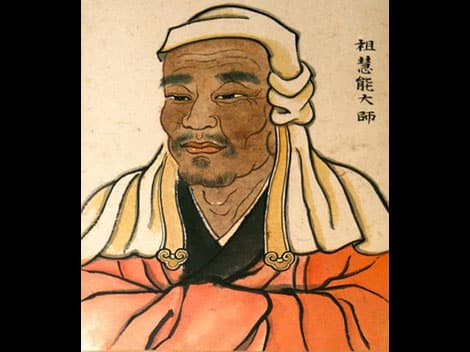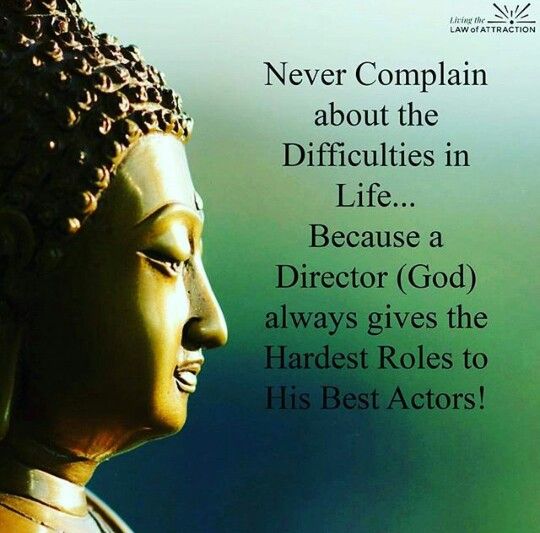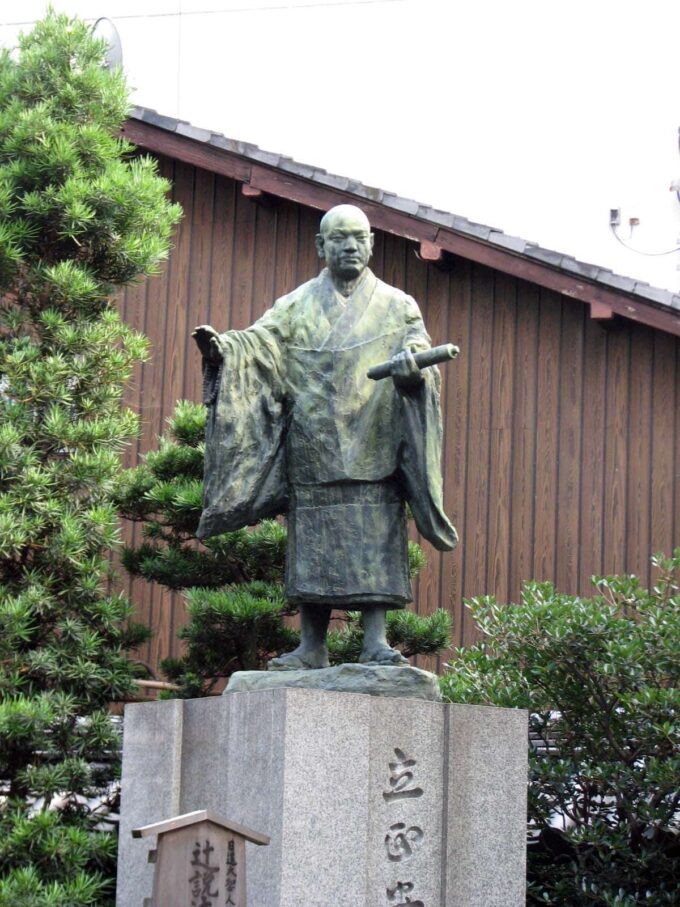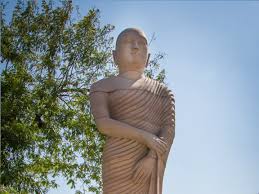Drikata or Dhrtaka or Dhītika is the fifth patriarch of the twenty-eight Indian patriarch of Buddhism. Drikata is best known for having converted to Buddhism the religious teacher Mishaka (Mikkaka or Micchaka) who became his successor, along with his eight thousand followers.
Drikata, whose real name is Thong Chon Luong, was the son of a wealthy brahmin. He was born 135 years after Buddha entered Parinirvana. His father was named Huong Chung, his mother was Phi Hoang, and he lived in Maghada country. At the age of twenty, Drikata went to Mathura, central northern India, where he met Upagupta where he was ordained as a monk.
The legend says that Upagupta wanted to enter Nirvana, but as Drikata had not yet been born, he waited until his birth to pass on the Dharma. One day, Upagupta was on a religious journey. He came to the door of an elderly man, who asked him, “Why do you, a holy sage, travel unattended?” He replied, “I have left the world, and am without family ties. No one has given me an attendant disciple. It may be you who will bestow this kindness.” The elderly man replied, “If I’ll have a son, I will respectfully offer him to you.” He afterward had a son, whom he named Drikata, who devoted himself in youth to the study of the Sutras and other books and then went in search of Upagupta.
When he met the Patriarch Upagupta, Drikata asked:
-“Respectfully dear master, I have heard that you are the Patriarch of Zen, thus how does Zen practice lead to becoming the Patriarch?” Patriarch Upagupta answered:
-“People follow practicing Zen. If we say we endeavor to cultivate, this will carry unhappiness.”
Drikata continued asking:
-“Here and now, there are too many people who endeavor cultivate, thus do they all have unhappiness? Patriarch Upagupta answered:
-They do not all have unhappiness.
Why is that? Drikata asked:
-Because those who endeavor cultivate would follow the reincarnation path, would like to be a slave for others, would like to plea from others, would like supernatural powers, etc.
Drikata also asked:
-Thereupon, I don’t like to do those things that those people mentioned above have done, I want to follow practicing with master without doing anything, can I?
Patriarch Upagupta answered:
-If you followed practicing my dharma but without doing anything, you will get more unhappiness.
One day Drikata was chopping one branch of bamboo, the bush-hook knife handle was loose and it flew away. It hit hard into the large bamboo tree, making a loud sound. Just hearing the sounding of the bush-hook knife impacting the bamboo tree, suddenly his body and mind were disappearing, but the resounding hearing of it went far without his knowing. It is from the disappearing of body and mind that the understanding about this, Zen dharma flows out. Drikata immediately went into the house to write down 60 lines of verse. A few days later he presented it to the Fourth Patriarch, Upagupta. When the Patriarch Upagupta was done reading Drikata’s verse with 60 lines he spoke:
-Thereupon, you have attained “Top Secret Zen.” Buddha taught, prior to whoever attained the Top Secret Zen that the stream of Zen passed by, that person who is the one conjoining the Patriarch of Zen is inherited as the Patriarch. Thus, 30 days after I will perform transmission “Top Secret Zen” for you to become the Fifth Patriarch of Zen.
30 days after, at the rock hall on the Son May Mountain, the transmission ceremony was organized only the master and Drikata attended. But it was still organized exactly according to the regulation of the transmission of Zen. The verse of transmission of Zen that the Patriarch Upagupta read and transmitted to the Patriarch Drikata was written down as follows:
Once, Zen flowers bloomed at Vulture Peak Mountain
Buddha taught Zen, noble more than jade gold
Transmitting to every place is very difficult
Now I am transmitting clearly for you.
***
Mind is the primal mind
Which is devoid of Dharma.
If Dharma and primal mind exist,
Both mind and primal Dharma will be false.
Having received the sevenfold instructions from Upagupta, he attained the state of an arhat. When Upagupta was old, he said to Drikata, “My time for entering the Nirvâna has come. The Dharma which I have taught I entrust to you. It will be your duty to teach it in regions far and near.” Drikata traveled throughout six of the great communities of India, carrying the Dharma as far as Tokharia in central Asia. Preaching to kings and commoners all across northern India, he turned the common people away from nature worship, black magic, and animal sacrifices. He entered nirvana at Ujjin, having entrusted the Dharma to Mishaka, who would be the sixth patriarch
***
‘’In the Dentoroku it is said: ‘’Dhitaka (Drikata) meet Ubakikuta (Upagupta), did sampai and told him:
– ‘’I want to become a monk, a shukke’’.
– ‘’Do you want to become a monk for the spirit or for the body ?’’
– ‘’My intention to become a monk is neither for the body nor for the spirit’’, said Dhitaka.’’
– ‘’But, if you do not want to become a monk for the body, neither for the spirit, who will become a monk ?’’ said Ubakikuta.
Photo credit: terebess/luk
Sources: THE LIFE AND ENLIGHTENED OF 36 PATRIARCHS OF ZEN BUDDHISM; sacred-texts




